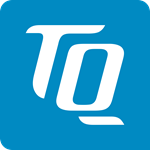6 Tech Market Trends That'll Disrupt The Insurance Industry
There was a lot of chatter surrounding the insurance industry last year as multiple private companies like New India Assurance, HDFC Standard Life Insurance, General Insurance Corporation, SBI Life, New India Assurance, ICICI Lombard General Insurance, and several public-sector undertakings or PSUs issued IPOs or Initial Public Offerings, listing themselves at the stock markets. This move was a clear indication that the industry means business.
The insurance industry presently capped at about $60 Billion (USD), is expected to experience a four-fold growth within the next decade. And since chances are tech-driven innovation will soon kick in, this growth will mostly be driven by significant industry disruptions with the customer set to be the winner at the end of it. A recent Deloitte report listed five exponential trends that’ll drive the disruption within the Insurance industry.
Conversational Chatbots
The Chatbot has been around for some time now, and all of us have witnessed the various ups and downs it’s been through. However, with the advances being made in cognitive technologies, Deloitte suggests that it’ll be possible to provide more relevant and accurate automated dialogues in the near future.Let’s look at speech recognition software, for instance. It has made notable developments in lowering word error rates. Furthermore, deep learning techniques have become quite helpful when it comes to machine translation.
The report further adds that improvement in language and speech processing technologies are increasingly making chatbots more proficient, expanding their potential uses across the enterprise.
Wearables
Wearable tech is the latest fad in the market, and it’s all thanks to IoT or the Internet of Things. According to IDC Asia, the wearable market in India went up by 42% by the end of 2016’s second quarter with over 567,000 wearables being sold.During a recent interaction with Mohit Rochlani, an Indian Entrepreneur and India First Life Insurance’s Operations and IT Director, he stated that IoT could be beneficial if used more often within the general insurance segment where Fitbit and related devices can be used to track a customer’s health, allowing companies to offer their clients better rates.
At the same time, the report gives an example of Bajaj Allianz which recently launched the DriveSmart Device. The telematics technology-driven device allows customers to use a pay as you drive vehicle insurance policy.
On-Demand Insurance
The difference between covering all things all the time and the precise risks faced at certain moments led to the introduction of a new product known as on-demand insurance. According to the report, this product is driven by an event or a need.Fingoole was one of the first insurers to take up the on-demand insurance policy which provides travel-related covers that insure things like bounced hotel bookings, delayed luggage check-in, personal accidents during a trip, debit/credit card misplacement, and missed flights.
Sharing Economy
The sharing economy concept has severely disrupted various sectors like the real-estate with things like co-working spaces and B2B real estate options now cropping up and the transportation industry with more people now opting to carpool.The report suggests that insurance companies that have ventured into the fast-growing peer-to-peer segment are using social networking and crowdsourcing to come up with a shared insurance experience. However, it is advisable that you wait and see if P2P insurance will actually work within the Indian Market.
Internationally, there are startups like the France-based InsPeer, Germany-based Friendsurance, New-York-Based Lemonade, and the London-based Guevara already working in this space.
Blockchain
You probably have read about blockchain and the potential it offers. If you are new to tech, blockchain is a digital distributed ledger that companies can use to detect frauds, maintain e-records, and save both time and manpower.Smart Blockchain-powered contracts can provide both insurers and customers a means to manage claims in an irrefutable, responsive and transparent manner. However, for it to work effectively, the community has to partner and work together on the platform.
A recent Business Standard report states 13 India-based insurance companies - including IDBI Federal Life Insurance, India First, and HDFC Life - are coming together to create a central policyholder data repository so that insurers don’t have to go through the registration procedure when applying for other policies.
Robotic Process Automation
The standard cost reduction mediums aren’t enough in today’s world and that is where computer-coded, rule-based software known to automate manual activities and rule-based tasks come into the picture.One area where such software has proven handy is in the accounting niche considering that accounting is a rules-based process that is conducted across different locations and often requires multiple handoffs.








 TechQuark is a mobile-friendly website. Simply bookmark
TechQuark is a mobile-friendly website. Simply bookmark 